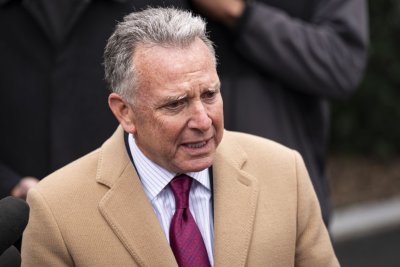
April 26 (UPI) — The United States and Iran on Saturday concluded their third round of “indirect” nuclear talks mediated by host Oman with both sides seeing progress in reaching a deal.
U.S. Special Envoy for Middle East Affairs Steve Witkoff again led American negotiators.
“The talks in Muscat were positive and productive. There is still much to do, but further progress was made on getting to a deal,” a senior U.S. official said in a statement obtained by Axios.
Iran’s Foreign Minister Abbas Araghchi told reporters that he thinks “our progress so far has been good. We are satisfied with the course of the negotiations. Both sides are showing seriousness.”
He said talks have become more technical.
“We are now gradually moving from general topics to more specialized issues,” Araghchi said. “Today, we had economic experts present, and I expect that from the next session, an expert from the Atomic Energy Organization will also join.”
The two sides exchanged opinions in writing several times during this round. Omani officials served as mediators with the two sides in separate rooms like the previous two negotiations.
Michael Anton, the State Department’s head of policy planning, headed the 12-member technical team of experts from U.S. government agencies
Leaders in both nations will review matters before the next meeting be in seven days. Oman will decide the next location. The first talks were in Muscar, Oman, on April 12 and the next in Rome on April 19. Technical talks also took place on Wednesday.
Iranian officials are “hopeful, but extremely cautious,” Araghchi said.
The talks only dealt with nuclear and Iran’s top diplomat said they “will not accept negotiating on any other issues.”
The mediator, Omani Foreign Minister Badr Albusaidi, posted on X the talks “identified a shared aspiration to reach agreement based on mutual respect and enduring commitments. Core principles, objectives, and technical concerns were all addressed.”
U.S. President Donald Trump said if a new deal isn’t reached, military action is threatened.
In an interview with Time magazine published Friday, Trump said “we can make a deal without the attack. I hope we can.”
During his first term, Trump pulled out of the Joint Comprehensive Plan of Action negotiated during former President Barack Obama‘s presidency.
The agreement was reached in 2015 between Iran, the United States and other world powers for Iran to limit its nuclear program in exchange for lifting sanctions. Iran resumed its nuclear activities after the deal was scrapped.